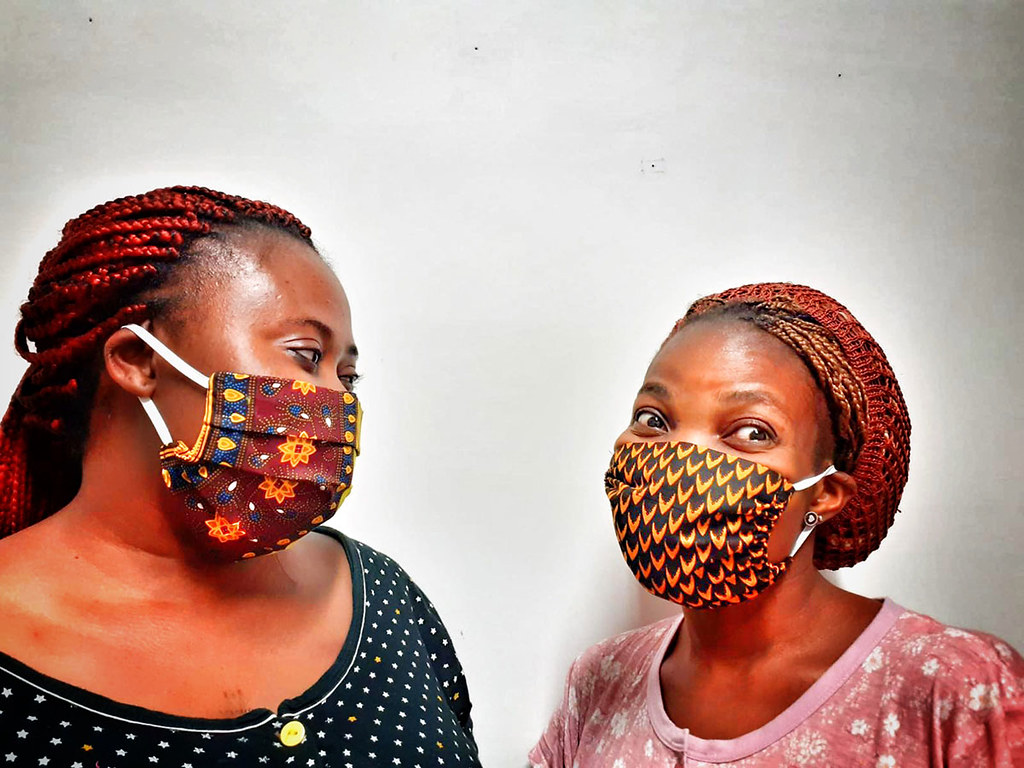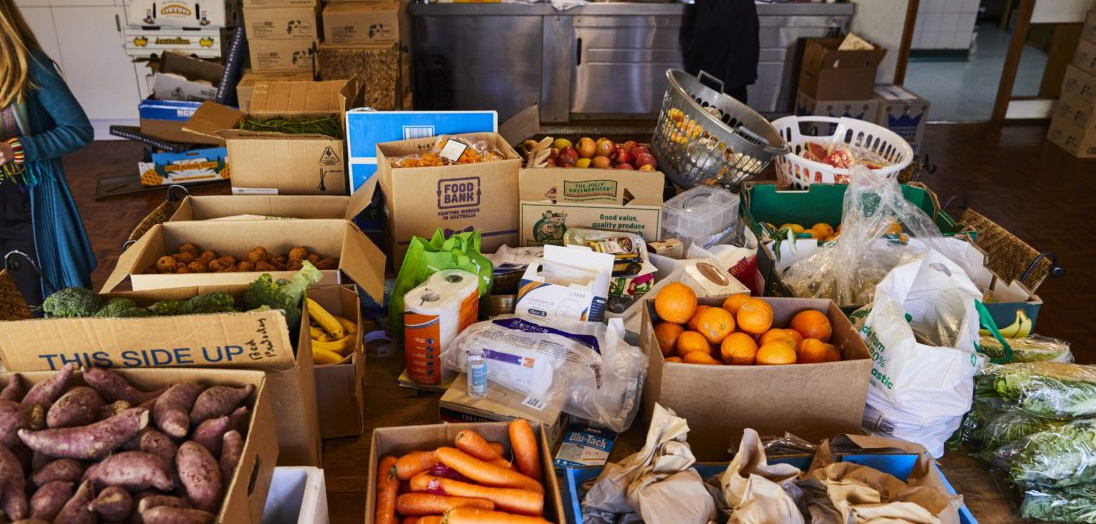Closing Gaps and Uplifting Voices: Finding Safety Forum 2024
23 September 2024|Sara Muzamil and Josephine Rechichi
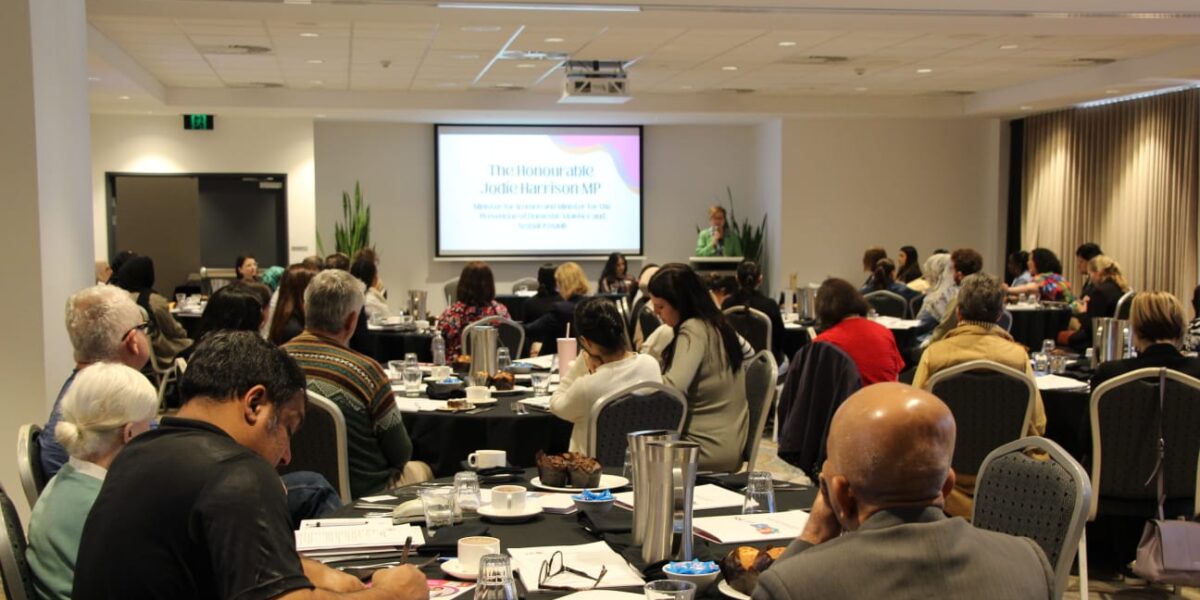
Closing Gaps and Uplifting Voices
Our Finding Safety Project hosts inaugural forum centring the needs of women on temporary visas who experience gender-based violence
On Thursday 29 August, Jesuit Refugee Service (JRS) Australia’s “Finding Safety Project” held its inaugural, in-person Insights Forum. The Forum aimed to educate the sector and uplift the voices of women seeking asylum and women on temporary visas, who have experienced gender-based violence.
Attended by over 80 community workers, advocates, government sector partners and supporters, the event proved a great success in highlighting the need for specialised support for women at the intersection of (and often the service gaps in between) gender-based violence and immigration.
Government contributions
The event featured opening remarks from NSW Minister for Women and the Prevention of Domestic, Family and Sexual Violence Jodie Harrison MP, who championed our collaborative approach to ending violence against women and children.
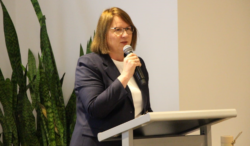
Recognising that there are gaps in our responses to women who are vulnerable, isolated and marginalised, Minister Harrison restated the NSW Government’s commitment to being at the table with the community, with services and with the Federal Government to continue to invest in evidence-based services across the continuum of support (prevention, response and recovery).
NSW MP Donna Davis highlighted the urgent need for support for women on temporary visas who are experiencing domestic violence. She praised the work of JRS Australia and emphasised her long-standing relationship with the organisation. Ms. Davis also expressed that by working together, we can close gaps in the system to create more effective responses for women on temporary visas and women seeking asylum, who are currently often ineligible for mainstream supports.
Expert insights from across the sector
Attendees at the Forum heard from a diverse range of experts across the sector, who are united in their advocacy for women who have experienced gender-based violence and are concerned about the lack of support for women on temporary visas.
Immigration system reform
Dr Marie Segrave, who presented current research into the way that the immigration system limits access to safety and justice and how piece-meal solutions have led to a system that allows perpetrators to act with impunity.
Specifically, Dr Segrave highlighted the need for immigration law reform, to ensure women on temporary visas are offered pathways to permanency, that allow them to remain in country, pursue justice, and navigate healing and recovery here in Australia.
Homelessness services
Tanya Smith from Parramatta Women’s Shelter spoke of the desperate need for a new system to support women on temporary visas to access safe and supported accommodation. She also addressed the injustice in resourcing and regulation, which often means the shelter has no choice but to turn women away when they have no income, and no “exit pathway”.
Women seeking asylum or on temporary visas often do not have work rights and are ineligible for income support through Centrelink. Under current practices, this means they can rarely secure safe accommodation through shelters.
Intersections of SGBV and immigration law
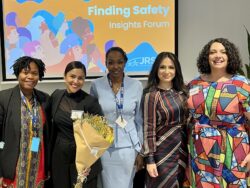
Nabilah Reza, a senior solicitor from Refugee and Casework Service (RACS), spoke about the complicated process of seeking asylum and how experiences of violence and trauma can impact on a person’s ability to recall details and provide the evidence needed for a successful outcome.
Nabilah highlighted how important access to specialist and trauma-informed legal advice is, to support women seeking asylum who have experienced violence. For this purpose, RACS runs the Women at Risk Legal Clinic every Thursday at the Women’s Space, in partnership with JRS Australia.
Finding Safety amid cultural complexity
Finding Safety Project Manager Sara Muzamil also explored complex forms of sexual, gender and honour-based violence and ways that the community and services sector can better identify and respond to these often-hidden forms of violence.
“Women on temporary visas, including women seeking asylum, come from diverse backgrounds and often bear the heavy burden of family honour,” Sara shared, emphasising the importance of culturally informed services.
“Without a broad understanding of the cultural dynamics involved, efforts to address their needs will fall short.”
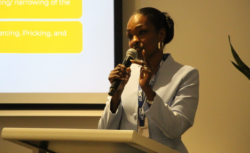 Raising awareness about honour-based violence and deepening our understanding of sexual and gender-based violence (SGBV)— including practices like female genital mutilation, child marriage, forced marriage, dowry abuse, trafficking, modern slavery, and breast ironing— are crucial steps.
Raising awareness about honour-based violence and deepening our understanding of sexual and gender-based violence (SGBV)— including practices like female genital mutilation, child marriage, forced marriage, dowry abuse, trafficking, modern slavery, and breast ironing— are crucial steps.
Sara hopes these efforts will lead to more effective responses from mainstream services across Australia.
Women’s experiences at the centre of the conversation
Finding Safety Project Officer Magdalene Konneh, who is a journalist and women’s rights advocate from Sierra Leone, shared her own experience of homelessness while she was seeking asylum in Australia, and emphasised the need for reform so that women on temporary visas are not excluded from refuges and shelters because they have no source of income.
“We need safe, flexible, supported accommodation, and an accompanying service system that is resourced to respond appropriately,” Magdalene advocated.
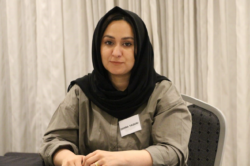 A panel of women with lived experience also shared their stories and insights about what life was like before receiving support from the Finding Safety Project, which operates from the Women’s Space and offers casework as well as community wellbeing programs.
A panel of women with lived experience also shared their stories and insights about what life was like before receiving support from the Finding Safety Project, which operates from the Women’s Space and offers casework as well as community wellbeing programs.
The women on the panel expressed how much the support and care they received through the Finding Safety Project had changed their lives.
In the absence of access to mainstream support, vulnerable women seeking asylum, or on temporary visas, often have nowhere else to go.
More needs to be done, to ensure women at these intersections receive equal access to support services at the State and Federal level, and that these services are trauma-informed and equipped to provide the support required for women who have experienced violence.
Feedback from Participants
Participants shared their appreciation for the opportunity to hear directly from women.
One shelter worker highlighted that the Forum stood out for the real-life insights from the women we serve.
“This was the best forum I have attended,” she said, “and that is because of the way women with lived experience were centred and held.”
A NSW State Government official also congratulated JRS Australia on the complex and multicultural education the Finding Safety Project team provided at the Forum.
“I wanted to congratulate you for the way you presented multicultural gender violence perpetrated against women,” the official shared to Sara Muzamil, Finding Safety Project Coordinator.
“You expressed your compassion and empathy towards the women with lived experience invited today. It shows a genuinely sincere drive for what you are doing.”
This Forum is just the beginning…
Building from the Insights Forum, the Finding Safety Project has received a funding extension to mid-2025, where we will be developing an increased focus on targeted advocacy for an improved service sector, policy and systems response.
Ending violence against women within a generation cannot happen if women on temporary visas are invisible. By centring their experience, and allowing their voices to be heard, we hope that a better tomorrow is just around the corner.
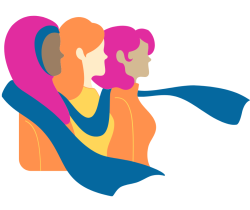 JRS Australia’s mission is to serve, accompany and advocate for refugees, people seeking asylum and migrants in situations of vulnerability. Our Finding Safety Project is a specialist project, based in our Women’s Space, for women and their children who have experienced gender-based violence. We offer casework, emergency relief, community wellbeing, referrals for services, leadership opportunities and pathways to self-empowerment.
JRS Australia’s mission is to serve, accompany and advocate for refugees, people seeking asylum and migrants in situations of vulnerability. Our Finding Safety Project is a specialist project, based in our Women’s Space, for women and their children who have experienced gender-based violence. We offer casework, emergency relief, community wellbeing, referrals for services, leadership opportunities and pathways to self-empowerment.
Learn more about our Finding Safety Project here.

